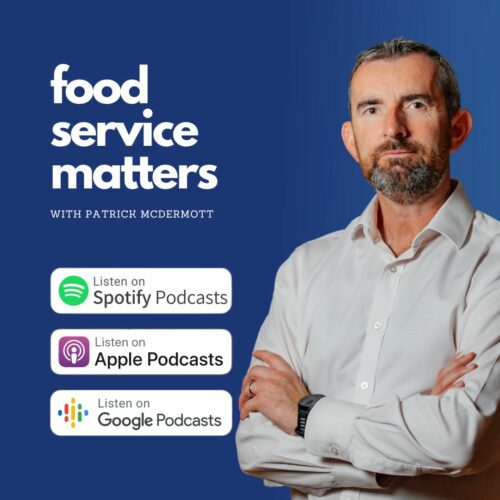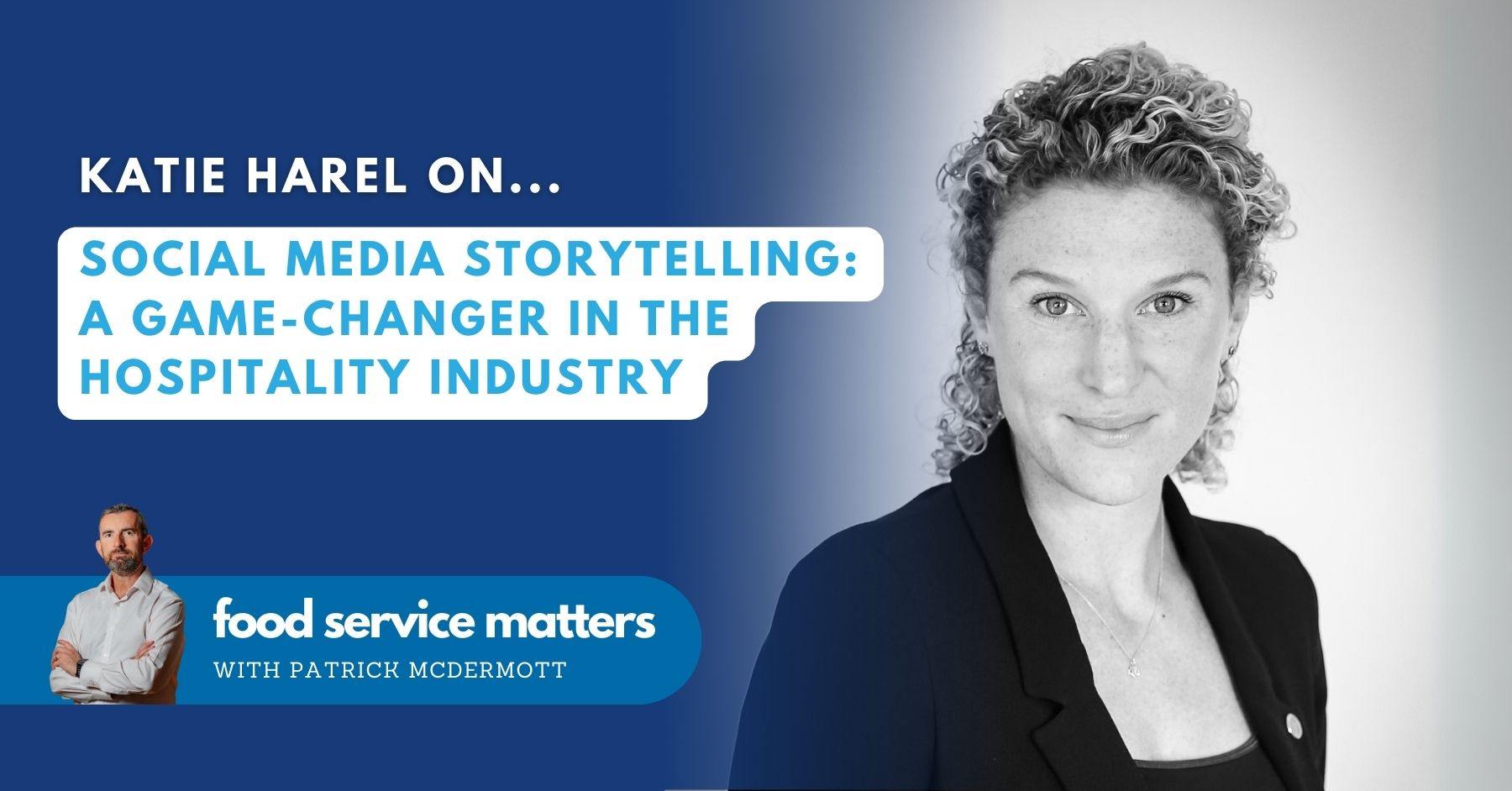Social media storytelling has become an essential marketing tool, enabling businesses to connect with their audience and showcase their unique offerings. But how can the hospitality industry leverage the power of social media storytelling to build brand awareness?
In Season Two, Episode Six of the Food Service Matters podcast, host Patrick McDermott talks to Katie Harel, Global Vice President of Marketing at Rhubarb Hospitality, an international hospitality company specialising in luxury event catering and creative dining experiences at iconic restaurants and venues.
Here, we share Katie’s insights into how storytelling can be used to create successful social media campaigns and connect with today’s audiences in the hospitality sector.
Building Brand Awareness and Engagement in Hospitality
Social media platforms offer hospitality brands a unique opportunity to present their products and services in a way that resonates with modern audiences.
Katie emphasises the importance of visual storytelling, particularly on Instagram. She highlights, “Instagram is used more than Google Search for restaurants, which is incredible. So, if your Instagram doesn’t tell a good enough story, people just won’t want to come and eat with you.”
Katie notes the significant impact of this kind of social media content on business. “I was reading a stat the other day – I think it was on Opentable – that something like 60 per cent of reservations now come through Instagram. So, customers will go on Instagram, check the restaurant, and then go back and book,” she explains. This underscores the importance of maintaining a strong, engaging presence across social platforms.
To build brand awareness and engagement, food service businesses should focus on sharing high-quality images and videos of their food, venues and experiences. Behind-the-scenes content gives followers a glimpse into the kitchen, staff or event preparations, creating a personal connection. Encouraging guests to share their experiences and then reposting their content can also boost engagement and authenticity.
Creating Successful Social Media Campaigns for Food Service
Successful social media campaigns hinge on creativity and consistency. Katie shares her experience at Rhubarb Hospitality, saying, “We have a team with a brilliant Head of Creative. He’s incredible and comes up with wild ideas, working hand in hand with our chef development team.”
Katie emphasises that businesses should focus on developing unique, shareable content that’s visually striking and encourages followers to share with their networks. Collaborating with influencers, such as food bloggers or local personalities, can help expand reach and credibility. Using branded hashtags for specific campaigns also allows businesses to track engagement and encourage user participation.
Highlighting the importance of measuring campaign success, Katie adds, “For us, it’s all about interactions and sharing. That’s what we look at in terms of social media. On Instagram, for example, we want to see how often our content has been shared, where people are looking at it, if they’re liking it, and so on.” Focusing on these metrics allows hospitality businesses to refine their strategies and improve their social media performance over time.
Connecting with Modern Audiences Through Storytelling
Audiences today crave authentic, engaging content that tells a story. Katie stresses the importance of staying current with trends, noting that “social media is changing so much.” In fact, Katie often discusses TikTok with other marketing professionals: “Some of us do it, some of us don’t. The ones that don’t, think, ‘Where do you even start? This is such a huge investment.’”
The key is to empower team members who are passionate about social media to put their skills to good use.
Katie gives the example of behind-the-scenes TikTok videos. “Ten years ago, if I walked in and saw chefs with their phones in the kitchen, I would have had a heart attack,” she smiles, reflecting on how much marketing has changed. “Now, you walk in, and if you don’t see chefs with their phones, you’re like, ‘Oh, this is weird. Why aren’t you dancing?’ So, it’s completely changed the way we do everything.”
The secret is to trust your team to create short, engaging, behind-the-scenes videos that build brand awareness. Katie adds, “You need people on your team who are obsessed with it. I have people on my team who are fantastic at it. They love it.” This enthusiasm can translate into compelling creative content that resonates with today’s audiences.
It’s evident that social media storytelling has become a crucial element in marketing strategies in the hospitality industry. As Katie’s experiences with Rhubarb Hospitality demonstrate, a creative and strategic approach to social media can drive business success and foster lasting connections with customers in today’s digital age.
To listen to Patrick’s full interview with Katie Harel, check out the Food Service Matters podcast on Spotify, Apple Podcasts or Google Podcasts.
Patrick is CEO of DigiTally, which is playing an increasingly important role as an intuitive and interconnected simple food service software that helps save time, increase margins and combat food waste. Keen to learn more? Let’s talk! Book a 30-minute call with Patrick and get your demo set up today.




